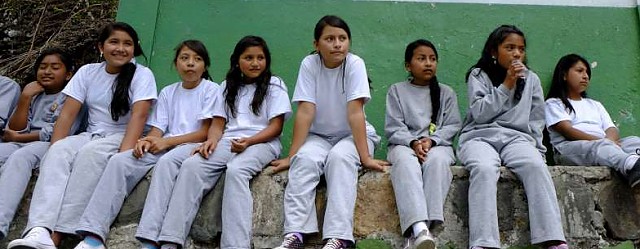Home > Where We Work > Americas > 30th Commemorative Anniversary of the Cartagena Declaration on Refugees > Brazil Plan of Action – One year of Implementation
Brazil Plan of Action – One year of Implementation

Quality of Asylum
Most countries of the region have incorporated international protection standards in their legislation and have established refugee status determination (RSD) bodies and procedures as part of the legal framework relating to refugees. Nonetheless, challenges persist and countries in the region have agreed that further consolidation of legal and institutional frameworks is required.
2014-2015 Progress
Building and consolidating asylum systems
In the past year, the Caribbean has made important strides, with legislation on refugee protection being drafted or enhanced in the Turks and Caicos Islands and Trinidad and Tobago, and a refugee policy drafted in Curaçao. Operational progress was made in the Bahamas, as well as in Antigua and Barbuda, where a first group of Syrian asylum-seekers were recognized as refugees by an ad hoc Eligibility Commission. The re-activation of the Refugee Eligibility Committee in Belize, which considered and approved its first cases of asylum-seekers from Central America in 17 years, was also significant. Trinidad and Tobago, in close cooperation with UNHCR, implemented its refugee policy and established a refugee unit for the first time. In Ecuador, at the invitation of the National Assembly, UNHCR provided comments on the draft Human Mobility Law, which regulates all situations related to migration movements, and includes a chapter on refugees and statelessness issues. Important improvements over the current asylum system include recognition of the declarative character of refugee recognition (as opposed to the status of the visa holder under the current system), and refugees being entitled to a national ID (cedula).
Quality Asylum Programme
Significant progress was also made in the context of the Quality Assurance Initiative (QAI). Brazil, Costa Rica, Mexico, and Panama, which have already initiated the Programme, made progress towards aligning procedural standards in refugee status determination. More countries, including Argentina, Bolivia and Chile, joined the Programme, and Peru has expressed interests in joining. Collaboration between Canada (CIC) and the United States of America (USCIS) resulted in a "twinning" capacity-building model, pairing with Mexico (COMAR) to strengthen RSD procedures.
Borders of Solidarity and Safety Programme
Important achievements were accomplished in Central America in the context of this programme. In Guatemala, a border monitoring and protection network and a UN Task Force on children and migration were set up, and reception facilities in four shelters for deported people were improved. In neighbouring Honduras and El Salvador, protection networks were enhanced, protection-sensitive reception protocols and guidelines developed, and through training workshops, the capacities of reception centre personnel were strengthened. Efforts focused on responding to the humanitarian situation of thousands of deported unaccompanied children and adolescents. In Honduras, the Government inaugurated an Assistance Centre for Returned Migrants in Omoa. In South America, cross-border monitoring mechanisms were strengthened and consolidated in Bolivia, Brazil, Chile and Peru. Meanwhile, in Colombia, the reception capacity at the border was improved and UNHCR will be working with the Migration Office to train border officials.